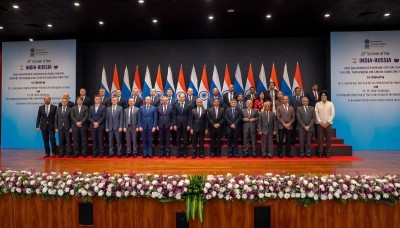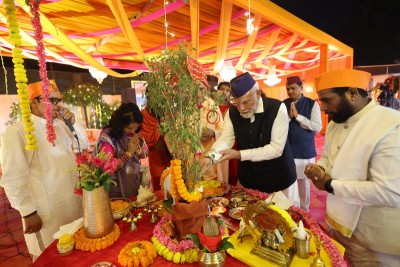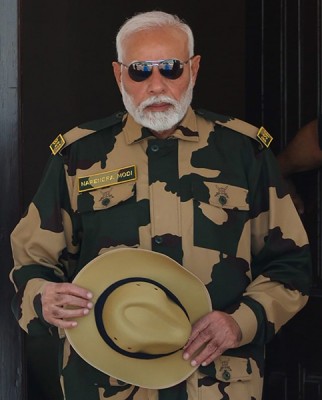 Imran Khan
Imran Khan
The attack on Imran Khan has deepened the political chaos in Pakistan and it portends uncertain and volatile times
Former Pakistani Prime Minister Imran Khan was shot and injured during a protest rally in Punjab province on 3 November in an incident that left one bystander dead and at least six others, including leaders of Khan’s (PTI), wounded.
The attack on Khan has propelled Pakistan into yet another stage of political instability, one fraught with the increased likelihood of further political violence. The reaction to the attack among Imran’s supporters has been swift, and protest demonstrations that have been held in all provinces of the country have seen participants assert that the attack had “crossed the red line” and pledge that they would lay their lives for their leader, whose popularity across the country has surged in recent months.
The Pakistan Army, which in the past has swiftly stepped in to rein in potential instability and chaos, today finds itself dealing with political and social polarization of a level not witnessed in the country’s history and may, therefore, find its traditional calling as the custodian of law and order in the country difficult to reenact.
Anticipating this, the Chief of Army Staff Qamar Javed Bajwa has stressed that the military would remain neutral. Fears, nevertheless, abound that an increase in volatility may well lead to the declaration of martial law, even if initially in only some parts of the country.
The details of how exactly the attack on Imran Khan took place are highly contested. The government said that the lone gunman involved was aggrieved at the un-Islamic practices being indulged in by Khan and his protesting followers, including playing songs and music at rallies even at the time of call for prayers. The former Information Minister in Imran Khan's cabinet, Fawad Chaudhry, who was behind Khan on the truck, seemed to agree with this version. He told news agency AFP that “There was a guy who was in front of the container who had this automatic pistol. He fired a burst. Everyone who was standing in the front row was hit”. Imran Khan, on the other hand claimed that there were two attackers. Khan told CNN that “They took out three bullets from my right leg. The left had some shrapnel which they’ve left inside”. He further claimed that the whole assassination plot against him was conceived two months ago, and added, “It all started when I was deposed, and from then onwards it was expected that my party would fall apart, but what happened instead was that there was a big public backlash and my party gained immense support”. On being asked about what information he has received and by whom, he said that he has got them from within the intelligence agencies. “Remember, three and a half years I was in power. I have connections with intelligence agencies, the different agencies that operate”. Khan wrote a letter to the country's President Arif Alvi, asking him to act against the “abuse of power and violations of laws and Constitution”. He wrote, “No person or State institution can be above the law of the land. We have been seeing a massive abuse of citizens at the hands of rogue elements within State organizations, including custodial torture and abductions all carried out with impunity. You hold the highest Office of State and I am requesting you to act now to stop the abuse of power and violations of our laws and of the Constitution, which ensures the fundamental rights of every citizen”.
Khan stepped into risky territory when on 3 November itself he blamed Prime Minister Shehbaz Sharif, Interior Minister Rana Sanaullah, and Director, Counter-Intelligence in the Inter-Services Intelligence (ISI) Major General Faisal Naseer for the attack. Khan called on his supporters to intensify protest against these three officials. “As long as these three men don’t resign, you have to protest, against unfairness, you must do a jihad against them, jihad means to stand against injustice”, he said. Khan also demanded that Pakistan’s Army Chief take action against the “black sheep” within the military and pledged to return to the protest and target Islamabad once he had recovered.
Khan’s accusations drew an immediate and sharp reaction from the Army, with the Director General (DG) of Inter-Services Public Relations (ISPR), the Army’s media wing, issuing a statement on 4 November that said, “The baseless and irresponsible allegations by Chairman PTI against the institution and particularly a senior officer are absolutely unacceptable and uncalled for. The Pakistan army prides itself for being an extremely professional and well-disciplined organisation”. The ISPR also threatened to initiate legal action against Khan. “No one will be allowed to defame the institution or its soldiers with impunity. Keeping this in view, the government of Pakistan has been requested to investigate the matter and initiate legal action against those responsible for defamation and false accusations against the institution and its officials without any evidence whatsoever”, the ISPR asserted. In Pakistan, it is no ordinary matter to publicly accuse senior intelligence and army officers of conspiring to kill a political leader.
Pakistan’s history over the 75 years of its existence has been characterized by political violence against leaders of all parties and affiliations, beginning with the assassination of its first Prime Minister Liaquat Ali Khan at a public meeting in Rawalpindi in 1951. Repeated military interventions, both direct and indirect, in politics, particularly at times when the country experienced instability, has been the bane of the country. Zulfikar Ali Bhutto, a popular Prime Minister, was ousted in a military coup by General Zia-ul Haq and then hanged in April 1979. In 1988, Zia-ul Haq himself died in a plane crash allegedly caused by political enemies. In more recent times Zulfikar Ali Bhutto’s daughter and former Prime Minister Benazir Bhutto was assassinated in December 2007. Prior to that, she had survived a massive suicide bombing in Karachi while campaigning for re-election in 2007. The military leader in charge at the time of Benazir’s death – General Pervez Musharraf – also faced repeated assassination attempts, with one involving a bomb exploding under a bridge as his car drove over it. Another Prime Minister, Yousaf Raza Gillani, survived an assassination attempt in 2008. In 2011, Shahbaz Bhatti, a Christian who was the Minister for Minority Affairs, was assassinated in Islamabad and Salman Taseer, a liberal businessman who was Governor of the province of Punjab, was shot dead by a bodyguard. Taseer and Bhatti had both been critical of Pakistan’s blasphemy laws, which are often used to target religious minorities.
The violence is not directed just at Pakistan’s leaders. Other forms of conflict have also influenced Pakistani politics. Over the decades, separatists have battled to win recognition, autonomy and resources from central government with peaceful protest, but also with guns and bombs. Writing in The Guardian, Jason Burke quoted Owen Bennett-Jones, a former BBC Islamabad correspondent and expert on Pakistan as saying, “Every day in Pakistan you can open a newspaper and see reports of people who have been killed for political, financial, tribal, or religious motives … as well as just common criminality, and that goes from top to bottom of society”. Bennett-Jones, the author of a book on the Bhutto dynasty, added, “One reason for the political violence is that the killers have impunity. Assassins know that they will not go to prison if they have sufficient political backing”. Burke underlined that State violence also soared, with the Army and other security forces turning their weapons on citizens in the name of protecting the country from subversion. Armed terrorists and militants were widely used as proxies by the security services to prosecute their own agendas at home and abroad.
As Michael Kugelman pointed out in Foreign Policy, the attack on Khan has put Pakistan’s Army in the hot seat as it faces a difficult situation from a weaker position than it is used to, with angry Khan supporters already converging on military facilities in protest. The institution has suffered months of highly unusual direct, public attacks on its leadership. The military, therefore, now lacks some leverage: it has lost popularity, and its current leadership is unsettled as it prepares to bring in a new army chief in the coming weeks. If the PTI in the coming weeks can gather and sustain crowds large enough to meaningfully disrupt life in the capital Islamabad, the Army will find itself further on the backfoot amid intense polarization and anger.
As the Stimson Center noted, Imran Khan’s popularity has rebounded since his ouster, due in part to unpopular economic decisions his successor has been forced to take. The current long march is the second such protest Khan has held since the spring demanding early elections. In addition to committed PTI supporters, he has also attracted many who are frustrated with Pakistan’s current political dispensation – including the military’s role despite its proclaimed neutrality. The ranks of those disaffected swelled further following the October murder of pro-PTI television anchor Arshad Sharif, who was killed by police in Kenya in an alleged case of mistaken identity that has raised questions in Pakistan and prompted unprecedented State denials. Even if instability persists and the military decided to intervene, the reaction of Imran’s supporters would be very different from how people reacted to previous military interventions. The assassination attempt on Imran has removed a lot of self-imposed censorship by people. While people demonstrated outside the office of the Corps Commander of Peshawar, others have been recorded chanting that the uniform is behind acts of terrorism and hooliganism.
As the respected Pakistani daily Dawn summarized eloquently in a scathing 7 November editorial titled ‘Democrats, dictators & demagogues’, “The system is imploding, spectacularly — collapsing under the weight of the multiple distortions created by decades of political engineering, not to mention outright military takeovers”, adding ominously that “No one seems to know how it will all end”.
Support Our Journalism
We cannot do without you.. your contribution supports unbiased journalism
IBNS is not driven by any ism- not wokeism, not racism, not skewed secularism, not hyper right-wing or left liberal ideals, nor by any hardline religious beliefs or hyper nationalism. We want to serve you good old objective news, as they are. We do not judge or preach. We let people decide for themselves. We only try to present factual and well-sourced news.







